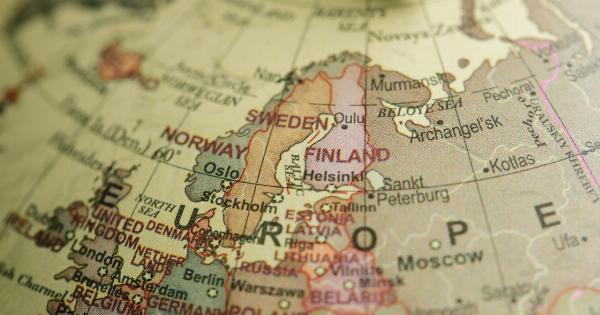The health of our reproductive systems can be a cause for concern, especially when it comes to fertility and the ability to conceive.
Sperm count is a significant indicator of male fertility, and there has been growing concern about its decline worldwide. In Europe, several countries have reported alarmingly low sperm counts, which has led to questions about the potential causes and implications for future generations.
Let’s take a look at which European countries are grappling with this issue and explore some possible factors contributing to the decline.
The Troubling Trend in Sperm Count
Researchers have been closely monitoring sperm count trends over the years and have observed a concerning pattern in Europe. Several studies have revealed a consistent decline in sperm count in various European countries.
While this decline is not exclusive to Europe and has been observed globally, it is essential to understand the specific situation in Europe and its potential ramifications.
Denmark
One of the countries facing the greatest challenge in terms of sperm count is Denmark. Recent studies have indicated a significant decline in sperm count among Danish men.
The cause of this decline remains uncertain, but possible factors include lifestyle choices, environmental pollution, and exposure to endocrine disruptors.
Finland
Finland is another European country where sperm counts have been below the healthy average. Several studies have reported a decline in sperm quality and quantity among Finnish men.
Researchers believe that environmental factors, such as exposure to chemicals and pesticides, could be contributing to the decline. Additionally, lifestyle factors like smoking, alcohol consumption, and obesity may also play a role.
Norway
Norway has also witnessed a decline in sperm count and quality over the years. Although the exact reasons for this decline are still under investigation, researchers suspect that environmental factors may be at play.
Pollution, chemicals, and exposure to pesticides are among the potential contributing factors that could be affecting the reproductive health of Norwegian men.
France
France has been experiencing a decline in sperm count and quality similar to other European countries.
Several studies have suggested that exposure to endocrine disruptors, such as bisphenol A (BPA) and phthalates, could be responsible for the decrease in sperm count among French men. Lifestyle factors like smoking and stress also likely contribute to this concerning trend.
Germany
In recent years, Germany has seen a decline in sperm count and quality. Researchers believe that lifestyle factors, such as smoking, alcohol consumption, and obesity, play a significant role in this decline.
Additionally, exposure to environmental contaminants and endocrine disruptors may also contribute to the issue.
Spain
Sperm count and quality in Spain have also been a cause for concern. Several studies have indicated a decline in sperm parameters among Spanish men.
Researchers suspect that factors such as obesity, exposure to chemicals, and high levels of air pollution could be influencing the decline.
Italy
Italy has not been immune to the declining sperm count trend either. Research has shown a decrease in sperm count and quality among Italian men. Lifestyle factors, including smoking, poor diet, and lack of exercise, likely contribute to this decline.
Exposure to environmental toxins and pollution may also play a role, although further research is needed.
Greece
Greece has also experienced a decline in sperm count and quality among its male population. Several studies have linked this decline to factors such as obesity, smoking, and exposure to environmental toxins, including air pollution.
These factors, combined with potential genetic and lifestyle factors, may collectively contribute to the decrease in fertility among Greek men.
United Kingdom
The United Kingdom is no stranger to the decline in sperm count either. Recent studies have reported a decrease in sperm quality and quantity among British men.
Factors such as obesity, smoking, and exposure to environmental toxins are believed to play a significant role in this decline.
Belgium
Belgium is one of the European countries that have been grappling with a decline in sperm count.
Lifestyle choices such as smoking, alcohol consumption, and poor diet, along with exposure to environmental pollutants, are among the factors that researchers believe are contributing to the decrease in sperm quality and quantity in Belgian men.
Identifying the Causes
The decline in sperm count across several European countries can be attributed to a variety of factors. While some causes are common among many nations, others may be specific to individual countries or regions.
The documented factors associated with decreased sperm count include:.
Lifestyle Choices and Habits
Unhealthy lifestyle choices, such as smoking, excessive alcohol consumption, drug abuse, sedentary behavior, poor diet, and stress, have all been linked to a decline in sperm count and quality.
These factors can negatively impact the hormonal balance and overall reproductive health of men.
Environmental Factors
Exposure to environmental pollutants, chemicals, pesticides, and air pollution has been associated with decreased sperm count and quality. These substances can act as endocrine disruptors and interfere with normal reproductive functions.
Obesity and Poor Diet
Obesity and poor dietary choices have been linked to decreased sperm count and quality. Obesity can disrupt hormonal balance, while a lack of essential nutrients in the diet can negatively affect sperm production and function.
Stress and Mental Health
Studies have shown that stress and mental health issues, such as anxiety and depression, can have detrimental effects on male fertility. These factors can disrupt hormone production and impair sperm development.
Genetic and Hereditary Factors
Genetic and hereditary factors also play a role in sperm count and quality. Certain genetic conditions, chromosomal abnormalities, and inherited disorders can affect fertility and lead to a decreased sperm count.
Conclusion
The decline in sperm count and quality is a worrying trend across multiple European countries.
While the specific causes vary from nation to nation, it is clear that lifestyle choices, environmental factors, and genetic predisposition all contribute to the issue. Promoting a healthier lifestyle, reducing exposure to environmental toxins, and raising awareness about the importance of reproductive health are essential steps towards combating this problem.






























